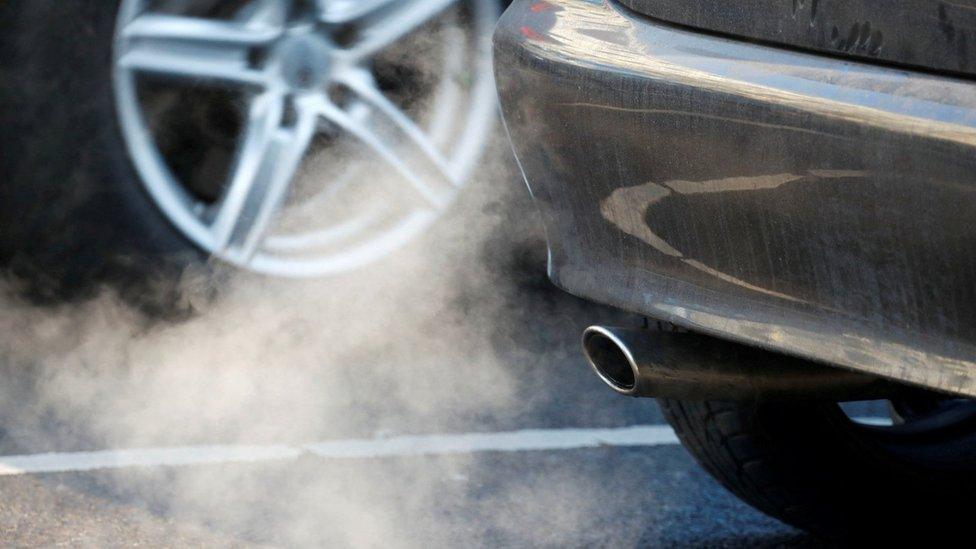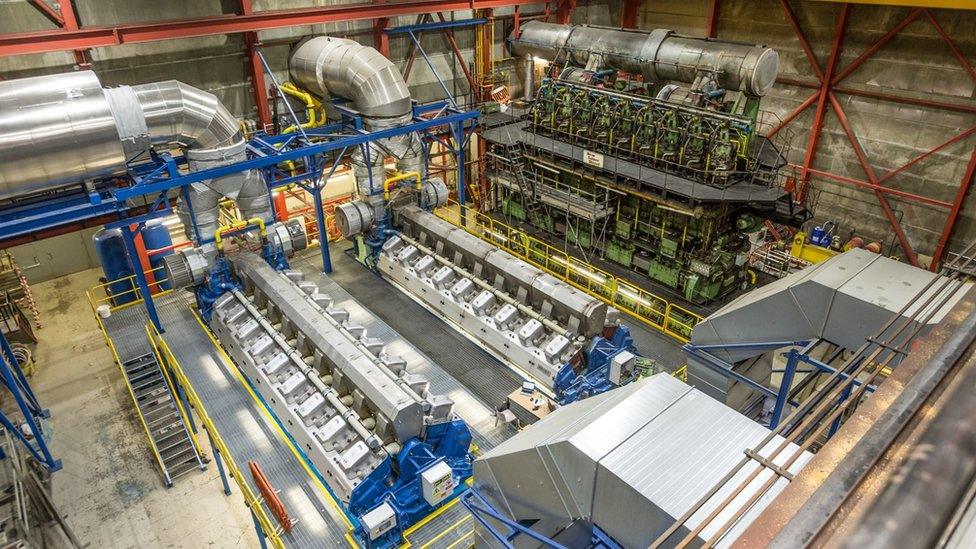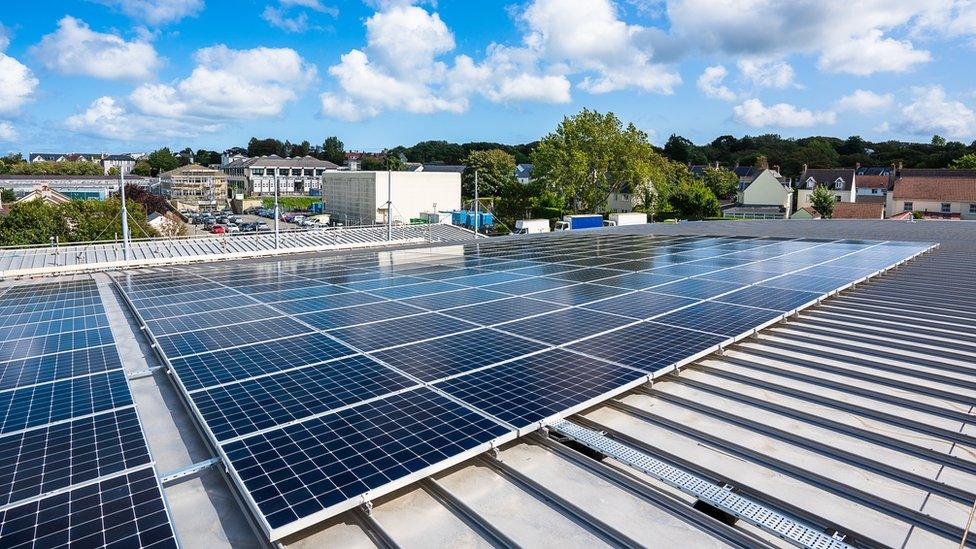Guernsey's emissions lower than pre-pandemic - States
- Published

Transport is the biggest contributor to greenhouse gases in Guernsey is transport
Guernsey's greenhouse gas emissions remain "significantly lower" than pre-pandemic levels, the States says.
In the latest report on the island's total emissions, external, the States said 293.2 kilotons were emitted in 2021 - about 4.6 tonnes per person.
The figure is slightly higher than the 292.5 kilotons emitted in 2020. Both years were affected by coronavirus.
The biggest contributor to emissions in 2021 was transport, which made up about a third of the total, the data said.
The report predicted emissions to rise to 336.1 kilotons in 2022.
However, the States said the estimate was still significantly lower than the 447 kilotons emitted in 2019.
'Right direction'
Deputy Lindsay de Sausmarez, President of the Committee for the Environment and Infrastructure, said year-on-year reductions in emissions were being made.
"Our emissions from 2020 and 2021 were always going to be something of an anomaly with unprecedented reductions in transport and commercial energy use due to lockdowns," she said.
"However, with the provisional estimate for 2022 below pre-Covid levels, the data suggest we are heading in the right direction."
She said efforts were under way to reduce emissions from transport by making the overall network more efficient.
"It's so interlinked with housing so we do have a big focus on transport because we can't deliver the housing we need unless we also make our transport system more efficient," she said.
Deputy de Sausmarez also credited a waste reduction strategy - which sees non-recyclable waste exported via the UK to Sweden to be incinerated and turned into energy - for emissions reductions.

Follow BBC Guernsey on Twitter, external and Facebook, external. Send your story ideas to channel.islands@bbc.co.uk, external.
Related topics
- Published30 November 2022

- Published1 April 2022

- Published4 June 2020

- Published19 August 2020
